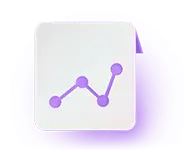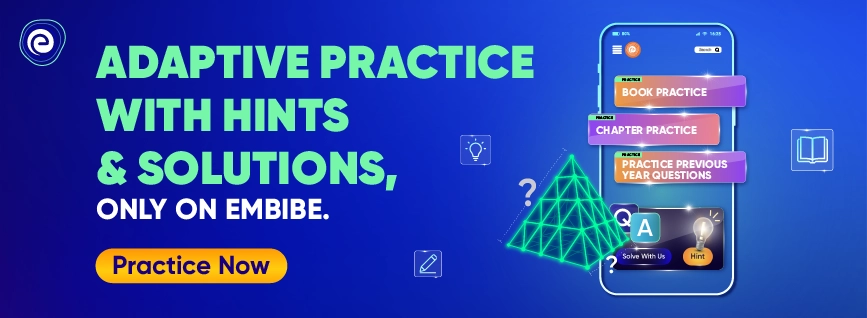- Written by aparna
- Last Modified on 14-02-2023
About International Baccalaureate Diploma Programme 2023
The International Baccalaureate Diploma Programme (IBDP) is a two-year high-quality IB course available to students aged 16 to 19 from all over the world. The IBDP is designed to help students develop physically, intellectually, emotionally, and ethically, and it culminates in the awarding of a globally recognised Diploma. For IBDP, there are six subject groups available, and students must select one course from each. There is also the option to substitute a course in the Sciences, Individuals and Societies, or Languages for a course in the Arts.
The IBDP is further divided into levels, with each student required to take at least three (but not more than four) subjects at the Higher Level (HL) and the remaining subjects at the Standard Level (SL). Although the scope of HL and SL courses differ, fewer subjects are graded using the same grade descriptors, with students expected to demonstrate a greater body of knowledge, understanding, and skills at a higher level. Aside from subject groups, the IBDP requires three core elements: Theory of Knowledge (TOK), Extended Essay (EE), and Creativity, Action, and Service (CAS). Continue reading to learn more about IB Diploma Programme.
International Baccalaureate Diploma Programme Summary 2023
The IBDP is designed for students who want to study at a top university almost anywhere in the world. It is designed for students who want to complete their education and are looking for a challenging but rewarding programme of study. The IBDP is also for students who want to learn more about different languages, cultures, and globally significant ideas and issues.
The IB exams are conducted in May or November for southern hemisphere schools. They are divided into two parts: external and internal assessments. The external assessment is the more traditional exam portion and consists of two or three “papers,” which are typically completed on the same day or a few days in a row.
Some of the IB programmes in India are as follows:
| Name of the Programme |
Age Range |
| Primary Years Programme |
3 – 12 |
| Middle Years Programme |
11 – 16 |
| Diploma Programme |
16 – 19 |
| Career-related Programme |
16 – 19 |
International Baccalaureate Diploma Programme Brochure 2023
A brochure is an essential resource when it comes to understanding the authenticity of a course. Students can refer to the International Baccalaureate Diploma programme brochure to have a proper understanding about the course. To learn more about the IBDP program and get access to the brochure, click here.
International Baccalaureate Diploma Programme Official Website Link
https://www.ibo.org/
International Baccalaureate Diploma Programme Latest Update 2023
While several schools accepted IB diplomas earned through non-exam routes in 2020, 2021, and 2022, many of them have since switched to only granting college credit based on the results of the IB Higher Level exams in 2022–23.
International Baccalaureate Diploma Programme Registration Process 2023
Students who meet the eligibility criteria of IBDP must fill out and submit the IBDP registration form 2023 before the deadline, which is the third week of April 2023. Schools and institutes will also handle registration on behalf of their students. The International Baccalaureate (IB) usually begins the registration process in October and April.
The IBDP application process is outlined below in detail:
- Step 1: Go to ibo.org, the official website.
- Step 2: At the top of the homepage, navigate to the “My IB” section.
- Step 3: A new page will be displayed where the necessary information must be entered.
- Step 4: After carefully filling out all of the information, click the “Create My Account” button.
- Step 5: Your account will be created. Log in at any time to complete registration and other important academic tasks.
International Baccalaureate Diploma Programme Exam Pattern 2023
The IDBP exams are divided into two parts: external and internal assessments. The more traditional exam portion is the external assessment, which consists of two or three papers that are typically completed on the same day or a few days in a row. A paper is essentially an exam section that includes multiple-choice, short-answer, extended-response, and data- or case-analysis questions.
The teacher, however, is in charge of the internal evaluations. These could include written lab reports, practical work (such as oral presentations), or other types of written work. The grading curve for that topic at the school will be determined based on the moderation of about 5% or more of the internal assessments, which will also be graded by an IB moderator.
IB exams are scored on a scale of 1–7; 6 and 7 are considered an A, and anything between that and 4 is typically seen as a passing mark (though the IB does not designate formal passing grades). For scores of 5 and higher, most colleges grant IB credit.
International Baccalaureate Diploma Programme Syllabus 2023
Every year, the IB board provides a curriculum for the exams. The International Baccalaureate (IB) offers four distinct programmes: the Primary Years Programme (PYP), the Middle Years Programme (MYP), the Diploma Programme (DP), and the Career-related Programme (CP). The IB board’s major examinations for the baccalaureate degree are the Diploma Programme and the Career-related Programme.
To know the syllabus for these exams, check the sections below:
IB Diploma Programme Biology Syllabus
Below, we have provided the detailed IBDP Biology syllabus for your reference. Check the syllabus carefully and ace the exams:
| Chapter No. |
Chapter Name |
| 1 |
Introduction to cells |
| 2 |
Ultrastructure of cells |
| 3 |
Membrane structure |
| 4 |
Membrane transport |
| 5 |
The origin of cells |
| 6 |
Cell division |
| 7 |
Molecules to metabolism |
| 8 |
Water |
| 9 |
Carbohydrates and lipids |
| 10 |
Proteins |
| 11 |
Enzymes |
| 12 |
Structure of DNA and RNA |
| 13 |
DNA replication, transcription and translation |
| 14 |
Cell respiration |
| 15 |
Photosynthesis |
| 16 |
Genes |
| 17 |
Chromosomes |
| 18 |
Meiosis |
| 19 |
Inheritance |
| 20 |
Genetic modification and biotechnology |
| 21 |
Species, communities and ecosystems |
| 22 |
Energy flow |
| 23 |
Carbon cycling |
| 24 |
Climate change |
| 25 |
Evidence for evolution |
| 26 |
Natural selection |
| 27 |
Classification of biodiversity |
| 28 |
Cladistics |
| 29 |
Digestion and absorption |
| 30 |
The blood system |
| 31 |
Defense against infectious disease |
| 32 |
Gas exchange |
| 33 |
Neurons and synapses |
| 34 |
Hormones, homeostasis and reproduction |
IB Diploma Programme Chemistry Syllabus
Below we have provided the detailed IBDP Chemistry syllabus to help you prepare for the exams effectively:
| Chapter No. |
Chapter Name |
| 1 |
Introduction to the particulate nature of matter and chemical change |
| 2 |
The mole concept |
| 3 |
Reacting masses and volumes |
| 4 |
The nuclear atom |
| 5 |
Electron configuration |
| 6 |
Periodic table |
| 7 |
Periodic trends |
| 8 |
Ionic bonding and structure |
| 9 |
Covalent bonding |
| 10 |
Covalent structures |
| 11 |
Intermolecular forces |
| 12 |
Metallic bonding |
| 13 |
Measuring energy changes |
| 14 |
Hess’s Law |
| 15 |
Bond enthalpies |
| 16 |
Collision theory and rates of reaction |
| 17 |
Equilibrium |
| 18 |
Theories of acids and bases |
| 19 |
Properties of acids and bases |
| 20 |
The pH scale |
| 21 |
Strong and weak acids and bases |
| 22 |
Acid deposition |
| 23 |
Oxidation and reduction |
| 24 |
Electrochemical cells |
| 25 |
Fundamentals of organic chemistry |
| 26 |
Functional group chemistry |
| 27 |
Uncertainties and errors in measurement and results |
| 28 |
Graphical techniques |
| 29 |
Spectroscopic identification of organic compounds |
IB Diploma Programme Physics Syllabus
The Physics syllabus for the IBDP exam has been tabulated below for your reference. Go through the topics carefully and score good marks:
| Chapter No. |
Chapter Name |
| 1 |
Measurements in physics |
| 2 |
Uncertainties and errors |
| 3 |
Vectors and scalars |
| 4 |
Motion |
| 5 |
Forces |
| 6 |
Work, energy and power |
| 7 |
Momentum and impulse |
| 8 |
Thermal concepts |
| 9 |
Modelling a gas |
| 10 |
Oscillations |
| 11 |
Travelling waves |
| 12 |
Wave characteristics |
| 13 |
Wave behaviour |
| 14 |
Standing waves |
| 15 |
Electric fields |
| 16 |
Heating effect of electric currents |
| 17 |
Electric cells |
| 18 |
Magnetic effects of electric currents |
| 19 |
Circular motion |
| 20 |
Newton’s law of gravitation |
| 21 |
Discrete energy and radioactivity |
| 22 |
Nuclear reactions |
| 23 |
The structure of matter |
| 24 |
Energy sources |
| 25 |
Thermal energy transfer |
IB Diploma Programme Maths Syllabus
The IBDP Maths syllabus for the upcoming exam has been tabulated below for reference. Check the syllabus carefully and prepare for the exams:
Mathematics: Analysis and Approaches
| Component |
Recommended teaching hours |
| SL |
HL |
1. Number and algebra
2. Functions
3. Geometry and trigonometry
4. Statistics and probability
5. Calculus |
19
21
25
27
28 |
39
32
51
33
55 |
| Development of investigational, problem-solving and modelling skills and the exploration of an area of mathematics |
30 |
30 |
| Total teaching hours |
150 |
240 |
Mathematics: Applications and Interpretation
| Component |
Recommended teaching hours |
| SL |
HL |
1. Number and algebra
2. Functions
3. Geometry and trigonometry
4. Statistics and probability
5. Calculus |
16
31
18
36
19 |
29
42
46
52
41 |
| Development of investigational, problem-solving and modelling skills and the exploration of an area of mathematics |
30 |
30 |
| Total teaching hours |
150 |
240 |
IB Diploma Programme English Syllabus
The English syllabus for the IBDP exam is not that vast. Still, students must concentrate on these topics to score good marks. Check the table below for reference:
| Component |
Recommended teaching hours |
| SL |
HL |
| Readers, writers and texts |
50 |
80 |
| Time and space |
50 |
80 |
| Intertextuality: connecting texts |
50 |
80 |
| Total teaching hours |
150 |
240 |
The major examinations held each year are the Diploma Programme and the Career-related Programme. Exams are typically given twice a year, once in November and once in May. For a clear understanding of the students, a tentative timetable is provided below for their convenience. Students can refer to this table for further details:
| Dates |
Morning session (After 7:00) |
Afternoon session (After 12:00) |
| 29 April 2023 |
——– |
Language B HL paper 1
Language B HL paper 2
– Reading comprehension
Language B SL paper 1
Language B SL paper 2
– Reading comprehension
Language ab initio SL paper 1
Language ab initio SL paper 2
– Reading comprehension |
| 30 April 2023 |
Business management HL paper 1
Business management SL paper 1
World religions SL paper 1 |
| 03 May 2023 |
Business Management HL paper 2
Business Management SL paper 2 |
Physics HL paper 1
Physics HL paper 2
Physics SL paper 1
Pysics SL paper 2 |
| 04 May 2023 |
Sports, exercise & health science HL paper 1
Sports, exercise & health science HL paper 2
Sports, exercise & health science SL paper 1
Sports, exercise & health science SL paper 2 |
History HL/SL paper 1
History HL/SL paper 2 |
| 05 May 2023 |
History HL paper 3 |
Language A Literature HL paper 1
Language A Literature SL paper 1
Language A Language & Literature HL paper 1
Language A Language & Literature SL paper 1* Except: English, French & Spanish |
| 06 May 2023 |
Classical Greek HL paper 2
Classical Greek SL paper 2 |
Mathematics:
Analysis and approaches HL paper 1
Analysis and approaches SL paper 1
Mathematics:
Applications and interpretation HL paper 1
Applications and interpretation SL paper 1 |
| 07 May 2023 |
Mathematics:
Analysis and approaches HL paper 2
Analysis and approaches SL paper 2
Mathematics:
Applications and interpretation HL paper 2
Applications and interpretation SL paper 2 |
Economics HL paper 1
Economics SL paper 1 |
| 10 May 2023 |
Economics HL paper 2
Economics HL paper 3
Economics SL paper 2 |
English A Literature HL paper 1
English A Literature SL paper 1
English A Language & Literature HL paper 1
English A Language & Literature SL paper 1
English B HL paper 1
English B HL paper 2
– Reading comprehension
English B SL paper 1
English B SL paper 2
– Reading comprehension
English ab initio SL paper 1
English ab initio SL paper 2
– Reading comprehensionLiterature & performance SL paper 2 |
| 11 May 2023 |
Mathematics:
Analysis and approaches HL paper 3
Mathematics:
Applications and interpretation HL paper 3 |
Computer science HL paper 1
Computer science SL paper 1Environmental systems & societies SL paper 1 |
| 12 May 2023 |
Computer science HL paper 3
Environmental systems & societies SL paper 2 |
Geography HL paper 1
Geography SL paper 1Philosophy HL paper 1
Philosophy SL paper 1Social & cultural anthropology HL paper 1
Social & cultural anthropology SL paper 1 |
| 13 May 2023 |
Geography HL/SL paper 2
Geography HL paper 3Global politics HL paper 2
Global politics SL paper 2Philosophy HL/SL paper 2
Philosophy HL paper 3Social & cultural anthropology HL paper 2
Social & cultural anthropology SL paper 2 |
Spanish A Literature HL paper 1
Spanish A Literature SL paper 1
Spanish A Language & Literature HL paper 1
Spanish A Language & Literature SL paper 1Spanish B HL paper 1
Spanish B HL paper 2
– Reading comprehension
Spanish B SL paper 1
Spanish B SL paper 2
– Reading comprehension
Spanish ab initio SL paper 1
Spanish ab initio SL paper 2
– Reading comprehension |
| 14 May 2023 |
Chemistry HL paper 1
Chemistry HL paper 2
Chemistry SL paper 1
Chemistry SL paper 2Design technology HL/SL paper 2
Design technology HL paper 3 |
——– |
| 17 May 2023 |
Latin HL paper 2
Latin SL paper 2 |
School-based syllabus SL paper 1 |
| 18 May 2023 |
School-based syllabus SL paper 2 |
Nature of science SL paper 1 |
| 19 May 2023 |
Biology HL paper 1
Biology HL paper 2
Biology SL paper 1
Biology SL paper 2Nature of science SL paper 2 |
Psychology HL paper 1
Psychology SL paper 1ITGS HL paper 1
ITGS SL paper 1 |
| 20 May 2023 |
Psychology HL paper 2
ITGS HL paper 3 |
French A Literature HL paper 1
French A Literature SL paper 1
French A Language & Literature HL paper 1
French A Language & Literature SL paper 1French B HL paper 1
French B HL paper 2
– Reading comprehension
French B SL paper 1
French B SL paper 2
– Reading comprehension
French ab initio SL paper 1
French ab initio SL paper 2
– Reading comprehension |
| 21 May 2023 |
Keep available for examinations as a contingency during the May 2023 session, awaiting instruction from IB |
International Baccalaureate Diploma Programme Study Plan to Maximise Score
To achieve high marks in the IBDP exams, a comprehensive strategy is required. Students should make a list of important topics and thoroughly study them prior to exams. When preparing for the exam, students should always select the best study material in order to gain a firm grasp on the subject. Students can use the preparation tips and study plan provided to help them achieve good grades.
IB Diploma Programme Preparation Tips
While preparing for a course or an exam, it is essential to have some tips handy. Preparation tips not only help save time but also helps students how they can have a fruitful exam preparation. Students can follow the preparation tips mentioned below to prepare for the exams and achieve great results:
- To plan their preparation, students should strive to identify their own weaknesses and strengths.
- The most important piece of advice for a successful exam result is to plan a timetable that takes into account all subjects equally.
- While studying, all distracting devices, such as cell phones, tv, laptop should be removed from the study area.
- To help you understand the material, make a list of key points and use flowcharts and diagrams.
- Use previous year’s papers to understand the pattern of the question paper better and to learn how to manage your time during the exam.
- Take regular breaks after studying each subject to refocus. Select a study space that is both comfortable and of distractions.
- For a more thorough evaluation, attempt as many IB Diploma mock tests as possible.
- Try writing the answers after learning them to improve your speed and accuracy.
IB Diploma Programme Detailed Study Plan
To help students prepare effectively for the exams, we have provided a detailed study plan that they follow to increase their chances of scoring well. This study plan will ensure that students are using their time and resources effectively. Following this study plan will provide a structured exam preparation for students. Keep reading to know more:
- Prepare a study space and post the timetable on a bulletin board to know where to start studying for the exam.
- Students must select the subjects they feel weak in and attempt to comprehend the complex concepts.
- Eat a healthy breakfast and take a break before moving on to other subjects.
- After that, students can choose whichever subject they want to study and finish it thoroughly.
- The following hour should be set aside for revision. Students should go over all of the topics they covered earlier in order to remember all of the important points.
- Regular breaks are essential for students. They can take a lunch break or go outside to play.
- Cover the major subjects first, then move on to other subjects.
- To get better grades, try to stick to the schedule every day.
- To have a clear mind, try to get 7-8 hours of sleep.
- Drink plenty of water and eat a nutritious diet. Take no stress before the exam.
International Baccalaureate Diploma Programme Exam Result 2023
The International Baccalaureate Diploma Programme Exam results for the May session will be announced by the IB board in July 2023 (tentative), and the results for the November session will be announced in January 2024. If students want to check their scores, they must first obtain their candidate PIN from their IB course coordinator.
They can access their results using that number by visiting the IB’s candidate results website after they are made public.
International Baccalaureate Diploma Programme Previous Year Statistics
The most recent final statistical bulletin for the Diploma Programme (DP) and Career-Related Programme (CP) contains summary statistics for the May 2022 assessment session. This bulletin is the first to include CP assessment statistics. The IB will provide this information for each May assessment session in the future.
The document includes comparisons to previous years’ statistics. To access the IBDP previous year statistics, click here.
International Baccalaureate Diploma Programme Supplementary Exam 2023
Students can retake any of their six academic subjects as long as they are offered by their IB World School. They can retake a subject up to three times in three different exam sessions. Check for specifics at the school, as it may follow different regulations.
If students want to retake the exam in November, they must register by July 2023 to qualify for lower registration fees. If they attempt again in May, the deadline to qualify for lower registration fees is January. Please keep in mind that the IB World School may have internal registration deadlines as well, so always check with the advisors and do not wait until the last minute.
FAQs on International Baccalaureate Diploma Programme 2023
The frequently asked questions on the IB Diploma Programme has been mentioned below:
Q. What is IB Diploma Programme?
Ans: The IB Diploma Programme is an international academic programme for students aged 16-19. This programme aims at helping students with their personal growth and inculcates some great academic skills to study in universities based abroad.
Q. Is the International Baccalaureate Diploma Programme intense for students?
Ans: Yes, the IBDP programme is quite intense due to its vast curriculum. It emphasises enhancing the knowledge of the students through six rigorous subjects.
Q. What are the benefits of the IB Diploma Programme?
Ans: The benefits of IBDP are that it provides international recognition, provides a well-organised curriculum, puts focus on students’ social responsibility, and much more.
Q. Is the International Baccalaureate Diploma Programme difficult?
Ans: The International Baccalaureate Diploma Programme is quite challenging, but with thorough knowledge of the subject and constant practice, one can ace the exams.
Q. Do IBDP students get into good colleges?
Ans: There are many factors that come into play while getting into a good college. However, students with IBDP certificates will be considered more during admissions.
List of Educational Institutions for International Baccalaureate Diploma Programme
The goal of the IB programme in India is to cultivate young people who are curious, knowledgeable, and caring and who use their understanding of other cultures and respect for others to make the world a better and more peaceful place. The organisation creates demanding international education programmes and rigorous assessments in collaboration with schools, governments, and international organisations.
Students can check the list of schools from the table below:
| S. No. |
Name of the school |
| 1 |
The International School Bangalore |
| 2 |
Aditya Birla World Academy, Mumbai |
| 3 |
American Embassy School, New Delhi |
| 4 |
Apeejay School International, South Delhi |
| 5 |
BD Somani International School, Mumbai |
| 6 |
Bunts Sangha’s S.M. Shetty International School & Jr. College, Mumbai |
| 7 |
Calcutta International School |
| 8 |
Christ Junior College, Bangalore |
| 9 |
D Y Patil International College, Pune |
| 10 |
Excelsior American School, Haryana |
International Baccalaureate in India – Career-related Programme
| S. No. |
Name of the school |
| 1 |
Manthan International School Kompally, Telangana |
| 2 |
Podar International School (Kalyan), Maharashtra |
| 3 |
Mahatma Gandhi International School, Gujarat |
Future Exam After International Baccalaureate Diploma Programme
For undergraduate courses, the Indian Institute of Science (IISc) accepts projected scores. If you do not have an Indian passport, you will not be able to apply for the course. The student must pass numerous entrance tests for engineering, medicine, architecture, and other fields. The following is information on the most important science exams:
- Medicine: You must comprehend the eligibility criteria if you are a student in the IB Board who wishes to pursue medicine. Physics, chemistry, and biology should all be included in your 12th-grade curriculum. However, there are six groups in the IB-DP (a two-year programme for students aged 16–19), and students must choose one topic from each group.
You can skip group 6 and choose any two subjects from the remaining groups. However, you must have three science subjects if you apply to medical school. This problem can be solved in two ways.
- Group 1: First Language (English)
- Group 2: Second Language (French, German ab initio, Hindi, etc.)
- Group3: Individuals and Societies (History, Economics, Business and Management, etc.)
- Group 4: Sciences (Biology, Chemistry, Physics and Environmental Systems)
- Group 5: Mathematics and Computer Science
- Group 6: Electives (either Visual Arts or a second subject from any other group except groups 1 and 2).
By taking an additional science topic, you can study seven subjects. This will not affect your overall IB diploma grade. As a result, taking the extra course is purely for the purpose of meeting the entrance exam requirements.
You can also apply for an IB diploma that is not offered regularly. This will satisfy the three sciences’ eligibility requirements. This is only conceivable if there are no other options for higher education. The school’s IB coordinator will supply you with the necessary information and assist you in completing this request.
- The Architecture Council is a non-profit organisation that promotes: The B. Arch Program requires a minimum of 50 per cent in 12th grade, with Mathematics as a required subject. The National Aptitude Test in Architecture (NATA), administered by the Council of Architecture, is required of all students.
You are eligible to apply to CEPT and other universities if your results have not yet been released or if you have applied for rechecking. You must provide an attested document from your principal stating that you are a science student who meets the entrance exam’s fundamental eligibility requirements.
- Engineering: Engineering entrance exams, such as IIT-JEE, BIT-SAT, VITEEE, COMEDK, and others, are among India’s most popular. You may take the test before your examinations. However, your admission will be provisional if you pass these exams and your final marks are not released at the time of counselling.



















































